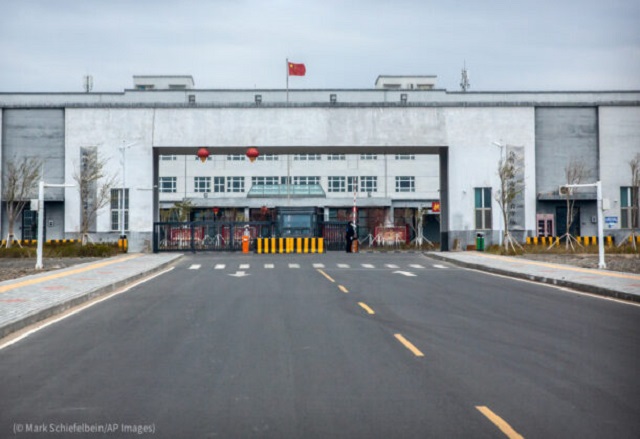Growing up in western China, Dilnur Reyhan read French authors and admired ideals enshrined in French culture, such as respect for personal liberty. So in 2004, facing discrimination in Xinjiang, the young Uyghur woman knew where she wanted to go.
“I came to France because I believed in human rights,” Reyhan said in May 2021, noting her mother raised her to love French literature. “I did not choose France by chance.”
Reyhan earned a doctorate in sociology and teaches at the National Institute of Oriental Languages and Civilizations in Paris. She also serves as the president of the European Uyghur Institute, founded in Paris in March 2019.
The institute advocates for the roughly 10,000 Uyghurs living in Europe, 10% of whom live in France. The institute teaches Uyghur language, history, music and dance, and soon plans to open a tea house for community events, complete with Uyghur cooking.
According to the institute, most Uyghurs living in Europe are young, with their average age between 30 and 35. Many came to study, then stayed rather than risk persecution after the People’s Republic of China (PRC) began a campaign of repression in Xinjiang.
Since 2017, the PRC has interned more than 1 million Uyghurs and members of other predominantly Muslim ethnic minority groups.

The People’s Republic of China has interned more than 1 million Uyghurs and other minority group members in detention centers such as this one, called Urumqi Number 3, in Xinjiang. (© Mark Schiefelbein/AP Images)
It forbids Uyghur children from studying their native language, subjects tens of thousands to forced labor, conducts mass surveillance, collects DNA, restricts religious practices, and imprisons Uyghur artists, poets and intellectuals.
The United States, Canada, the United Kingdom and the European Union have each sanctioned top PRC officials in Xinjiang for human rights violations and called for an end to the PRC’s repression of minority group members.
The institute’s Eleanor Hart said the group formed because Uyghurs “needed to create a structure that responded to what’s happening in the Uyghur region but also responded to their new data as not just students or students abroad, but people living in exile.”
Roughly 12 million Uyghurs live in Xinjiang, a region in western China. Hundreds of thousands of Uyghurs live in countries near Xinjiang, including Kazakhstan, Kyrgyzstan and Uzbekistan.
For Reyhan, PRC atrocities in Xinjiang bring added significance to highlighting Uyghur culture. As editor of the magazine, Regard sur les Ouïghour-e-s, she publishes stories of Uyghurs’ lives in Uyghur and French. Through the institute, she educates the public on rights abuses in Xinjiang, working with activists and lobbying officials to support Uyghurs.
“The first goal is to safeguard the Uyghur language and culture in Europe,” Reyhan said, “especially for the first generation of Uyghurs born in Europe so that they are both fully Uyghur and fully European.”
Banner image: Dilnur Reyhan, President of the European Uighur Institute, advocates for the rights of Uighurs everywhere. (Courtesy of Dilnur Reyhan)







COMMENTS1
中国北京政府のウイグル人ジェノサイドはドイツの独裁者ヒトラーでもやる事を躊躇するほどの酷い悪行です。許しがたきものが有りますね。習近平独裁者の世界支配を完成させるためには人権侵害に迷う事なく容赦なくやり遂げます。国際社会の結束力は脆弱です。結束力を乱す日本政府をアメリカが許す訳はない、来年こそ勝負の時 出来れば北京冬季五輪ボイコットをぜひ実行して頂きたかった。成功などさせられない!証拠隠滅のため更にウイグル人の虐殺が有るかも分かりません。国際社会が結束力を高める事に期待したいです。 神の御加護を
LEAVE A COMMENT
TOP